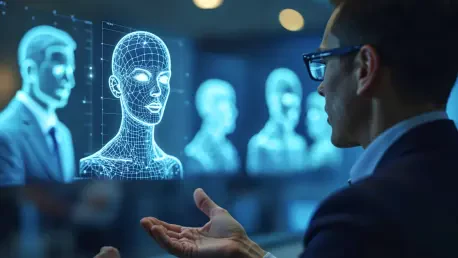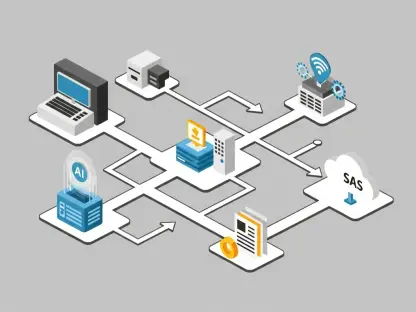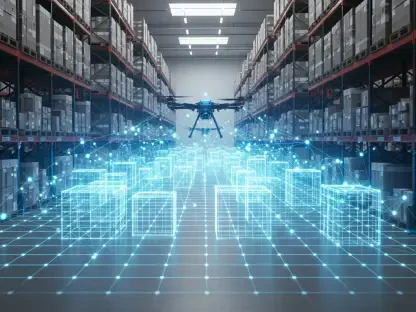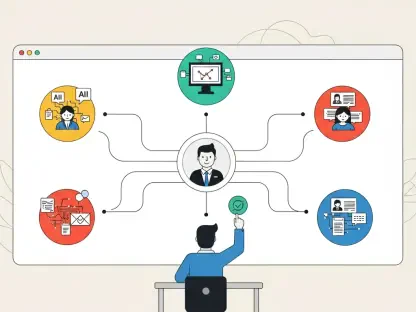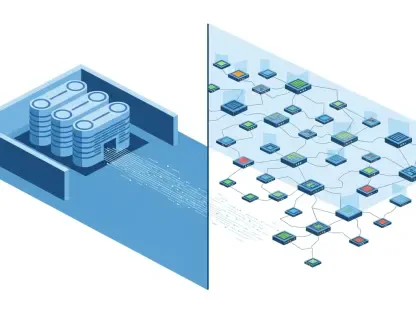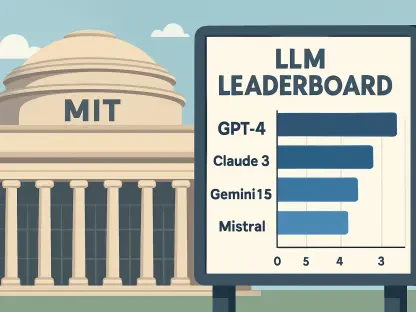Welcome to an insightful conversation with Laurent Giraid, a renowned technologist and expert in artificial intelligence. With a deep focus on machine learning, natural language processing, and the ethical dimensions of AI, Laurent has been at the forefront of understanding how this transformative technology is reshaping our world. Today, we dive into the rapid pace of AI development, exploring its societal implications, cultural challenges, and the urgent need for guardrails as we navigate this uncharted territory. Our discussion touches on the profound potential of AI to revolutionize industries, the risks of unpreparedness, and the delicate balance between innovation and responsibility.
How do you view the current speed of AI advancements, and what immediate impacts do you foresee for society?
The speed of AI development right now is staggering. We’re seeing models that are not just faster but also more capable in reasoning and tool use, pushing boundaries we didn’t think were possible just a few years ago. In the short term, this means incredible opportunities for efficiency and innovation—think healthcare diagnostics or personalized education. But it also brings immediate challenges like privacy concerns, misinformation, and job displacement in sectors that rely on routine tasks. Society might feel the whiplash of these changes before we’ve even had a chance to process them, which is why we need to start preparing now.
What strikes you most about comparisons between the AI era and historical shifts like the Industrial Revolution?
The comparison to the Industrial Revolution is apt but also sobering. Experts have suggested that AI’s impact could be exponentially larger and faster, compressing centuries of change into mere decades or even years. What strikes me is the sheer scale and velocity—unlike the Industrial Revolution, which unfolded over generations, AI’s transformation is happening in real-time. This leaves us with little room to adapt or correct course. It’s not just about new tools; it’s about redefining how we live, work, and even think about our purpose. That urgency is what keeps me up at night.
How is this rapid progress reshaping our understanding of personal value and purpose?
AI is forcing us to rethink what it means to be human in a world where machines can mimic or surpass our cognitive abilities. Historically, much of our identity and value came from our work and problem-solving skills. Now, as AI takes over tasks we once defined ourselves by, there’s a risk of feeling redundant or disconnected. On the flip side, it opens up space for us to focus on uniquely human traits—creativity, empathy, relationships. But this shift isn’t automatic; it requires a cultural reorientation to prioritize what machines can’t replicate, and we’re not there yet.
What do you see as the most critical gaps in our societal systems when it comes to handling AI’s transformation?
The biggest gaps are in our infrastructure—both institutional and cultural. Our education systems are still geared toward industrial-era needs, not a future where adaptability and digital literacy are paramount. Governance lags even further; we lack frameworks to regulate AI’s deployment or ensure equitable benefits. Then there’s the civic trust issue—many systems integrating AI do so without transparency, which erodes public confidence. These gaps aren’t just technical; they’re about our ability to collectively imagine and build a future that matches AI’s pace.
How can we begin to modernize outdated systems like education or governance to keep up with AI’s momentum?
Modernizing starts with a mindset shift. For education, we need to focus on lifelong learning and skills like critical thinking and collaboration, rather than static knowledge. Think of curriculums that evolve with technology, integrating AI tools as part of learning. For governance, it’s about agility—creating flexible, adaptive policies that can respond to AI’s rapid changes, not rigid laws that take years to pass. We also need public-private partnerships to fund and test these updates, ensuring they’re not just reactive but proactive. It’s a tall order, but the alternative is being perpetually behind.
In what ways can AI empower professionals across different fields, based on the examples you’ve seen?
AI has immense potential to empower professionals by acting as a collaborator. I’ve seen stories of researchers using AI to brainstorm solutions, accelerating discovery by handling complex computations or suggesting novel approaches. In fields like medicine, AI can analyze vast datasets to support diagnoses, freeing doctors to focus on patient care. Even in creative industries, AI can spark ideas or automate tedious tasks. The key is augmentation—using AI to enhance human capability, not replace it. When done right, it can make work more fulfilling and efficient across the board.
What risks do you see for certain professions as AI continues to advance, and how might we address them?
The risks are real, especially for roles involving routine or repetitive tasks—think logistics planning, budget analysis, or customer service. AI can automate these at a scale and speed that could displace workers faster than they can adapt. The danger isn’t just job loss but the erosion of economic stability for entire communities. Addressing this means investing in retraining programs tailored to emerging needs, like AI system management or creative problem-solving. We also need social safety nets—think universal basic income pilots or wage subsidies—to cushion the transition. It’s about giving people a bridge to the future, not just hoping they figure it out.
Looking at historical technological revolutions, what lessons can we apply to mitigate AI’s potential societal harms?
History teaches us that technological revolutions always bring upheaval before balance. The Industrial Revolution showed us the cost of unpreparedness—child labor, unsafe working conditions, and vast inequality emerged because society reacted after the harm, not before. With AI, we can learn to anticipate. That means building protections early—labor rights for a digital age, education reform, and wealth distribution mechanisms. We also need to prioritize inclusive dialogue now, ensuring diverse voices shape AI’s rollout, unlike past revolutions where only a few benefited initially. History gives us a blueprint; we just have to act on it.
Given the accelerated timeline of AI’s impact, how much room do we really have to correct mistakes compared to past transformations?
Frankly, we have very little room. Past transformations unfolded over decades, giving societies time—albeit painful—to adapt. With AI, the timeline is compressed to years, maybe even months for some impacts. If we wait for mistakes to become crises, like widespread unemployment or systemic bias in AI decision-making, it might be too late to course-correct without massive disruption. This narrow window demands preemptive action—regulation, ethical guidelines, and public education must happen concurrently with innovation, not as an afterthought. The stakes are just too high.
What is your forecast for the future of AI and its integration into society over the next decade?
Over the next decade, I see AI becoming an ambient part of daily life—embedded in everything from healthcare to governance to personal interactions. The potential for good is enormous: breakthroughs in disease treatment, climate solutions, and personalized learning could redefine human progress. But the risks are equally significant—unregulated AI could deepen inequality, erode privacy, and destabilize economies if we don’t build robust guardrails. My forecast hinges on our collective action: if we prioritize ethical frameworks, transparent deployment, and equitable access, we can steer toward abundance. If not, we risk a fragmented future where benefits accrue to the few. The choice is ours, and the clock is ticking.
